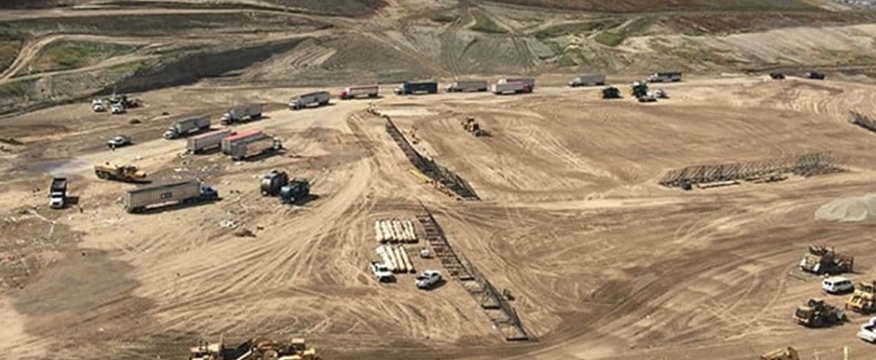Introduction:
Recycling plays a pivotal role in protecting the environment and conserving valuable resources. In the United Kingdom, Scotland has emerged as a trailblazer in waste management and recycling practices. With its robust recycling infrastructure and a strong commitment to sustainability, Scotland serves as a shining example for the rest of the UK. This article explores Scotland's recycling facilities and highlights the importance of recycling for a greener future in the UK.
The Evolution of Recycling in Scotland:
Over the years, Scotland has made significant strides in developing an efficient and comprehensive recycling system. The Scottish government, along with local authorities and waste management companies, has placed a strong emphasis on promoting recycling and diverting waste from landfills. This collective effort has led to impressive achievements, positioning Scotland as one of the leading nations in recycling within the UK.
State-of-the-Art Recycling Facilities:
Scotland boasts a network of state-of-the-art recycling facilities strategically located throughout the country. These facilities are equipped with advanced technologies and processes that enable the efficient sorting, processing, and recycling of various types of waste. From paper and plastic to glass and organic materials, Scotland's recycling facilities have the capacity to handle a wide range of recyclables, minimizing waste and maximizing resource recovery.
Community Recycling Centers:
In addition to large-scale recycling facilities, Scotland has established numerous community recycling centers, making recycling easily accessible to residents. These centers serve as drop-off points for recyclable materials and offer convenient options for individuals to dispose of their waste responsibly. By providing easily accessible locations for recycling, Scotland encourages citizens to participate actively in the recycling process and reduce their carbon footprint.
Innovative Technologies and Practices:
Scotland continually strives to enhance its recycling capabilities through the adoption of innovative technologies and best practices. For instance, advanced sorting systems utilize automation and artificial intelligence to improve the efficiency and accuracy of waste sorting. Scotland also embraces the concept of a circular economy, where materials are recycled and repurposed, reducing the reliance on virgin resources and minimizing environmental impact.
Environmental and Economic Benefits:
The importance of recycling in Scotland extends beyond environmental preservation. By recycling waste materials, Scotland reduces the demand for raw materials, conserves energy, and decreases greenhouse gas emissions. Additionally, recycling supports local economies by creating jobs within the waste management and recycling sector, contributing to sustainable economic growth.
The Responsibility of Individuals:
While Scotland's recycling infrastructure is robust, the success of the recycling system relies on the active participation of individuals. It is crucial for residents across the UK to understand the importance of recycling and to take responsibility for their waste. By adopting simple habits such as separating recyclables from general waste and utilizing recycling bins correctly, individuals can contribute to the success of Scotland's recycling initiatives and help build a greener future for the entire UK.
Conclusion:
Scotland's recycling facilities and commitment to sustainable waste management serve as a model for the entire United Kingdom. Through the development of advanced recycling infrastructure, widespread accessibility to recycling centers, and the promotion of responsible waste disposal practices, Scotland has shown that recycling is an essential pillar of a sustainable society. By embracing recycling and actively participating in the recycling process, individuals can contribute to a cleaner, greener future for the UK and beyond. Let us follow Scotland's lead and pave the way for a more environmentally conscious nation.
https://www.ourgreenstreets.org/org/callander-household-recycling-centre/
Acceptable Wastes for Recycling:
- Paper and Cardboard: This includes newspapers, magazines, office paper, cardboard boxes, and packaging materials.
- Plastics: Many types of plastics can be recycled, including bottles, containers, plastic bags, and packaging materials. Check local guidelines for specific instructions on plastic recycling.
- Glass: Glass bottles and jars can be recycled. It is important to separate glass by color (clear, green, and brown) to ensure proper recycling.
- Metals: Aluminum cans, steel cans, tin cans, and empty aerosol cans can be recycled. It is crucial to ensure these items are empty and clean before recycling.
- Textiles: Unwanted clothing, shoes, and household textiles can often be recycled. Consider donating usable items to charity or using textile recycling facilities.
- Electronics: Electronic waste, including old computers, televisions, and mobile phones, should be recycled through authorized electronic waste recycling programs to prevent environmental contamination.
- Batteries: Household batteries, such as AA, AAA, and rechargeable batteries, should be recycled separately to prevent the release of harmful substances.
- Organic Waste: Food scraps and garden waste can be composted, reducing landfill waste and producing nutrient-rich compost for gardens.
Unacceptable Wastes for Recycling:
- Hazardous Waste: Hazardous materials such as paint, chemicals, pesticides, and motor oil should not be included in regular recycling. These items require specialized disposal methods to prevent environmental harm.
- Medical Waste: Items such as syringes, needles, and medical sharps must be disposed of properly to prevent injury and contamination. Contact local authorities for guidance on the safe disposal of medical waste.
- Food Contaminated Items: Items soiled with food waste, such as heavily greased pizza boxes or food packaging, may not be suitable for recycling. It is best to discard these items in general waste bins.
- Soft Plastic Bags: Thin, single-use plastic bags typically cannot be recycled in standard recycling systems. Many supermarkets and retailers provide designated collection points for recycling soft plastics.
- Polystyrene Foam: Expanded polystyrene foam (commonly known as Styrofoam) is generally not accepted for recycling. It should be disposed of as general waste.
- Mixed Material Items: Items that consist of multiple materials fused together, such as laminated packaging or Tetra Pak cartons, may not be recyclable through standard systems. Check local guidelines for specific instructions.
It is important to note that specific guidelines and acceptable waste streams may vary depending on the local authority or waste management facility. Therefore, it is always advisable to consult local recycling guidelines or contact the local authority for accurate and up-to-date information on acceptable and unacceptable wastes for recycling in your region.





Comments